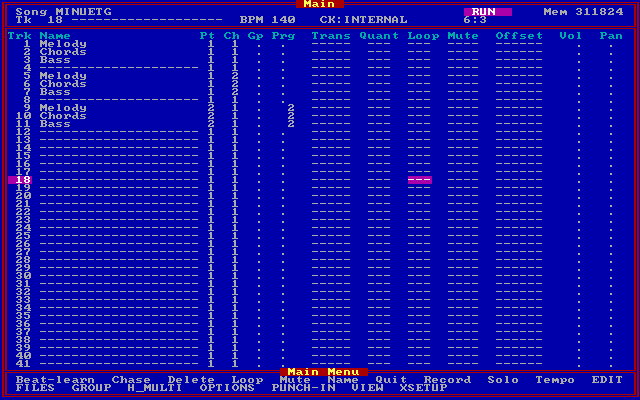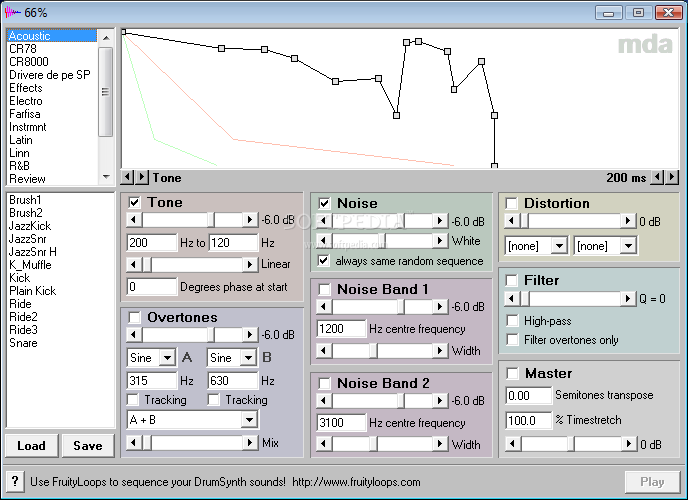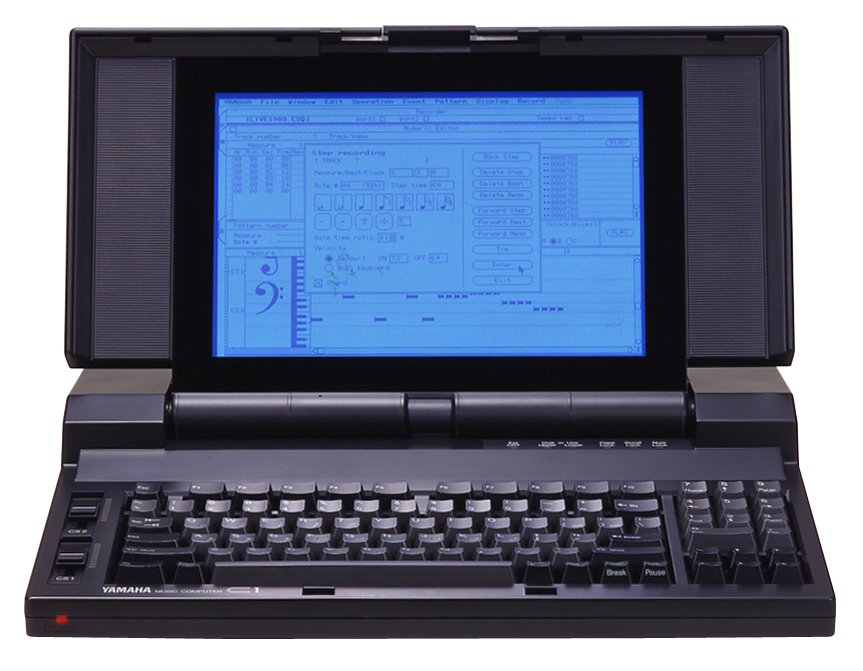Computer Music Chronicles: The 90's pt.2
US Older Music Machines & the People Who Still Use Them 15/01/24

|
Atari, Amiga, PC, Mac. These were your main choices as a music maker in the 90's, if you needed a computer for sound generation, MIDI shenanigans or the nascent art of direct-to-disk recording. You might be aware that I'm an Amiga fan, so I have a heavy bias towards that machine, but the reality is that each platform had something special to offer. This was bound to happen, because the computer landscape of the 80s & 90s was filled with absolute geniuses who managed to work miracles with limited hardware designs.
By 1994, Commodore had gone bust...and whilst a small, dedicated market remained for Amiga Musicians, served by imaginative software (Octamed Soundstudio is STILL an awesome tracker that I use to this day) and some 16-bit audio cards, the machine was in decline. The same was largely true of Atari, who had discontinued their awesome Falcon '030 machine to gamble big on the Jaguar 64-bit console. Acorn was around too of course, but their focus had always been the education market and not Techno bangers.
So, outside of huge bespoke computerised systems like the Synclavier or Fairlight III, you could pick PC or you could pick Mac. These two behemoths are still two major choices within our computing landscape, and it would be impossible for me to begin to even approach full coverage of each system. So I'm going to cover a few cool things from each in the following two articles, in hopes that you'll at least have fun reading them!
The PC
Or the "Windoze PeeCee" as rival users called the system, "Intel Outside" badges proudly displayed on our cases (lol). The interesting thing about PC music in the 90's is that the whilst the IBM PC (& compatibles) was a de-facto computing standard, the sound of the machine was anything but! Your standard PC computer game at the time had options for a number of "Sound Cards", including:
- PC Speaker - A monophonic onboard Square-wave beeper, home to some surprising arrangements!
- Ad Lib - A 2OP FM card with fairly large scope for custom game instruments,
- Soundblaster - Similar to Ad Lib but with an additional PCM channel,
- Covox Speech Thing - Basically a DAC that could play back samples, in a fairly CPU-intensive manner,
- Roland MT32/CM32L - External box; LA synthesis with filtered saw/square waves, ringmod & PCM samples.
The "External box" trend lasted way up until the early 2000's, when Softsynths became versatile enough to replace their functionality. All major synthesizer/keyboard manufacturers made PC-focussed sound modules. So when not game playing, how could you make use of these?
PC Sequencing came of age in 1988, when the DOS program "Sequencer Plus" by Voyetra exploded onto the scene. Despite it's dour, text-based appearance, it was praised as a fully featured sequencer, with full piano-roll editing, transposition, quantisation, track looping, muting, soloing, time offset, track pan and volume. A later "Gold" version was released in 1992.

Travelling musicians with a bit of a budget might have opted for Yamaha's C1 Music Computer. With eight MIDI Out ports, two MIDI In ports, a MIDI Thru port, SMPTE Time Code In and Out ports, a 286 processor, expansion card slot, two RS232 serial ports and a printer port, it could certainly run a whole live show. Voyetra's software was a natural fit for the machine, which is so beautifully designed that even I, a hardcore Amigian, would like to own one!
Fast forward a few years and happily, despite the Amiga's demise, it had a lasting influence on PC music from the mid 90's onwards. Trackers continued to develop. Now running on dedicated sound cards, they offered 16-bit quality. Fast Tracker II (1994) and ModPlug Tracker (1997) were popular choices and the XM "extended module" format became widely used within the games industry. Such modules, where a small amount of WAV data could be sequenced into longer musical forms, were useful in an age where disk space was at a premium. There were interesting FM-based trackers too; here's Adlib tracker playing Kraftwerk on a Toshiba Libretto, one of 98's tiniest Pentium laptops:
It was also the era in which PC Softsynths became interesting. Even outside of VST plugins, launched in 1996 for effects, 1999 for instruments, there were all sorts of interesting stand-a-lone PC programs that did weird musical things. I run a couple of them on my own Toshiba, a chunky Win '95 model that looks like it could survive a fall down the stairs.
The first program I like is called Granulab 1.0, a pretty full featured realtime Granular Synth with grain density, pitch and amp envelope. I enjoy running sounds from the Microsoft Musical Instruments CD-ROM through it, for peak late-90's Windows vibes.
The second program is DrumSynth v2.0 which is not realtime, but is nevertheless a super interesting percussion synthesizer with base tones, overtones, ringmod, a flexible noise source, filtering and distortion. The numerous, multi-stage envelopes actually allow you to *not* focus on drum sounds and let you create weird soundscapes instead!

Of course, there's much more to talk about in the PC world, but next time it's time to turn our attention to the Apple Macintosh. What wonders will we find there? If you'd like to read through a treasure trove of Music/Computer related articles, then head on over to Mu:zines and feast your eyes on their collection: https://www.muzines.co.uk/features/8
Posted by MagicalSynthAdventure an expert in synthesis technology from last Century and Amiga enthusiast.
< More From: MISCELLANEOUS
- 4 Software Synths that Became Hardware! 02-May-24
- The Tunes in Tokyo Train Stations 30-Apr-24
- 5 Ingenious Ways Synth-makers Saved Memory 26-Apr-24
- 3 of the Synth World's Most Outrageous Easter Eggs! 23-Apr-24
- 5 Firmware Updates that Totally Changed the Game 09-Apr-24
Even more news...







